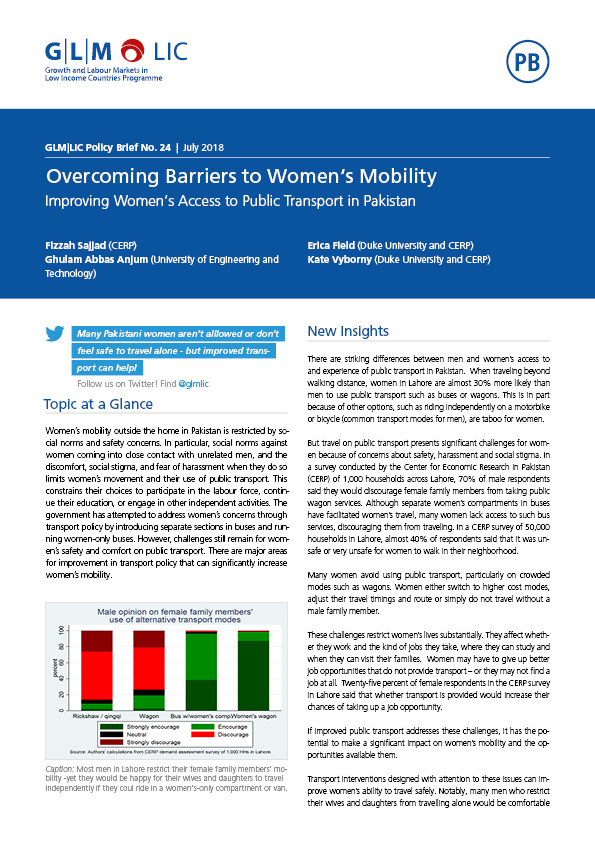Women’s mobility outside the home in Pakistan is restricted by social norms and safety concerns. In particular, social norms against women coming into close contact with unrelated men, and the discomfort, social stigma, and fear of harassment when they do so limits women’s movement and their use of public transport. This constrains their choices to participate in the labour force, continue their education, or engage in other independent activities. The government has attempted to address women’s concerns through transport policy by introducing separate sections in buses and running women-only buses. However, challenges still remain for women’s safety and comfort on public transport. There are major areas for improvement in transport policy that can significantly increase women’s mobility.
